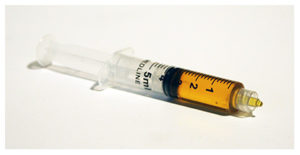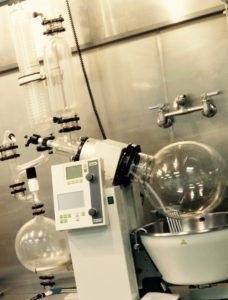NaturPro Scientific stands out as consultants who work for our clients.
Our history: We have more than 30 years experience in developing the scientific aspects of botanical products to support human health. So when we started to work on cannabis, hemp and CBD products in 2013, it was second nature.
There are a lot of things to consider when developing cannabis products or hiring a consultant.
- Whether your partners understand regulations, compliance and quality assurance, and how to balance these with business. We help you meet the legal requirements and regulations, without breaking the bank.
- Scientific expertise and experience across all the function platforms of health product businesses. Whether it’s the science, regulations, communications, validation or due diligence needed, you need someone who’s going to share expert opinions with honesty and transparency.
- Inside knowledge of industry standards through active participation on committees of industry standards-setting organizations like American Herbal Products Association, ASTM International and the U.S. Hemp Roundtable. We have a solid reputation in the food, supplement, CBD and cannabis industry as someone you can trust.
- Experience consulting and working efficiently with companies of all sizes and types. Our clients ultimately value our knowledge of both the ideal and the practical, and helping to bridge the gap between efficiently and cost effectively.
Contact us today to learn more about how our expert consultants can help drive your cannabis firm and products to groundbreaking innovation, compliance and success.
——————-
Cannabis Consultants and Experts in Innovation, Product Development and Regulatory Compliance
——————-
Quick Links:
- Cannabis SOP
- Cannabis and CBD Experts
- California Cannabis Regulations
- Natural Products Consultants – Types of Products
- About Us
——————–
NaturPro Scientific is a recognized leader in regulatory compliance, GMP and quality assurance on CBD, cannabis, botanical drugs, dietary supplements and foods.
What are Good Manufacturing Practices? Good Manufacturing Practices (GMP) ensures products are consistently produced and controlled to the quality standards and conform to all applicable regulatory requirements. Good Manufacturing Practices are fundamental to any manufacturing industry and are often required to be implemented in plants and factories by national governments. Our team of experts can assist you with the development and evaluation of GMP programs for cannabis, marijuana, hemp and CBD products.
We help you to train qualified staff, get in-depth and correct understanding of standards, and establish comprehensive management systems.
Audits for GMP and Quality Assurance
Here are some of the services we offer for cannabis compliance:
- Audits
- Preliminary Gap Analysis
- Facility GMP pre-audits
- Internal Audits
- Third-Party Audits
- CAPA Audits
- Quality Management
- Materials Testing
- Process Approvals
- Documentation and SOP
- Quality Manual
- Recordkeeping
- Document Control
- Traceability & Recall
- Formula Records
- Batch Records
- Certificates of Analysis
- Risk Analysis
- Hazard Analysis
- Purchasing Criteria & Specifications
- Supplier Qualification
- Preventive Controls
- Product Approval & Rejection, Material Inspection
- Complaints & CAPA (Corrective Actions)
- Quality Issue Investigation and Resolution
- Training and Hiring
- Investor Due Diligence
NaturPro works closely with our clients to provide the most cost effective way to achieve GMP certification and an edge in the market.
The 4 main benefits of our audits (among many) include:
- Understanding where you are may not meet regulatory requirements
- Provide reviews and recommendations from a fresh perspective
- Train your staff on dealing with regulatory audits
- Reduce the risk of a food safety issue or costly product recall.
Audits are an integral part of the licensing and ongoing regulatory compliance process for cannabis, marijuana and CBD products. Cannabis audits can be rigorous, and are seen as a true ‘stress test’ on your quality system.
Pre-License Audits
Prior to issuing a license (e.g., Cultivation, Processor, Retail), regulators may require demonstration compliance with the relevant cannabis regulation, and to ensure implementation of critical regulatory requirements such as physical security requirements, recordkeeping and good production practices. Licensed cannabis firms are required to demonstrate regulatory compliance at these audits in order to achieve (and maintain) their license.
Introductory Audits
An introductory audit may be scheduled after the pre-licensing audit, when the licensee is ready to start production. NaturPro Scientific is often hired to participate in and support our clients before, during and after regulatory audits. This audit is conducted to verify compliance against regulations in addition to inventory control/activities.
GMP Audit
This type of audit assesses compliance against established Good Manufacturing Process (GMP) guidelines. Our experts have extensive experience with GMP audits to assist cultivators and processors identify gaps against the regulations/standards, and putting appropriate corrective and preventative actions in place.
Quality Assurance
NaturPro has FDA-trained food safety experts (PCQI) and chemists on staff, and we are often called to perform duties of a Quality Manager for our clients. We handle and interpret lab testing, support supply chain and supplier qualification based on best practices for cannabis and botanical drugs.
Standard operating procedures (SOP) for cultivation, processing and testing operations can be challenging. NaturPro Scientific’s experience with SOP helps you get to your desired outcome quickly and efficiently.
Our experience in cannabis includes:
- Currently serve on ASTM International and American Herbal Products Association (AHPA) Cannabis Committees
- Supported the development of operating standards and wrote standard operating procedures (SOP) for Good Manufacturing Practices (GMP) for cannabis standards‐setting organization, currently under review by ASTM International
- Currently serve as regulatory and quality assurance consultant for hemp industry and trade organizations
- Founding member of new self regulatory organization for hemp and CBD products
- Coordinated initial R&D, production, quality assurance and regulatory affairs for a cannabis startup with operations in Washington, Colorado and Nevada
- Assisted in development of cannabis license applications in New York, Florida, California, Colorado and Louisiana
- Established analytical testing standards and guidelines for potency and purity of cannabis products
- Audited cannabis analytical laboratory data according to ISO 17025 standards
- Developed in‐house formulas, materials lists, manufacturing processes, manufacturing records and operational guidelines for cannabis extract and finished product production
- Developed R&D for and commercial processes for large‐scale extraction and purification of cannabinoids and terpenes from cannabis
CBD Procedures and SOP (Standard Operating Procedures) are the central part of operations of any cultivation, extraction, processing, packaging or testing business. Startups who invest in solid standard operating procedures (SOP) find themselves several steps ahead, running efficiently, with well-trained staff, and don’t suffer any costly mistakes.
CBD SOP are required by each state where cannabis, marijuana or hemp are regulated.
Any cannabis, hemp, medical or adult-use (recreational) marijuana product is subject to a number of controls, from seed to shelf. NaturPro Scientific has supported a number of clients in the aim of providing safe, effective cannabis and hemp products to support human health.
- Cultivation or Processing
- Management
- Applicable Regulations
- Operations
- Training & Safety
- Hygiene
- Sanitation & Cleaning
- Farm or Facility
- Equipment
- Seeds and Propagation Materials
- Agricultural Inputs
- Pre-harvest practices
- Harvesting
- Post-harvest practices
- Drying & Milling
- Sampling
- Testing (Potency, purity, cannabinoids, microbiology, heavy metals, pesticides)
- Waste Management
- Quality Management Systems
- Product Quality Policy/Manual
- Recordkeeping
- Document Control
- Formula Records
- Batch Records
- Certificates of Analysis
- Traceability & Recall
- Risk Analysis
- Hazard Analysis
- Purchasing Criteria & Specifications
- Supplier Qualification
- Intentional Adulteration
- Preventive Controls
- Product Approval & Rejection, Material Inspection
- Complaints & CAPA (Corrective Actions)



